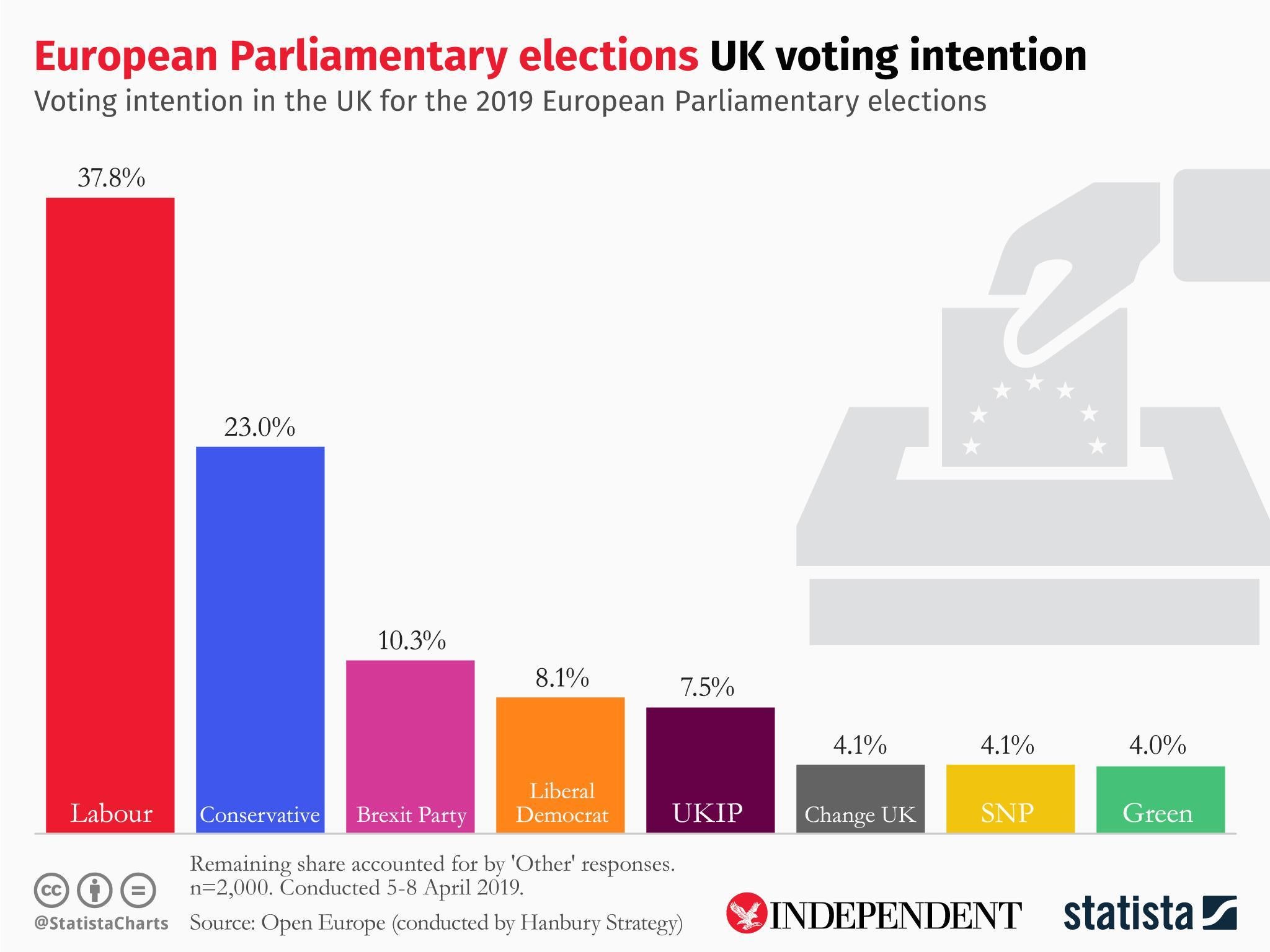Brexit party led by Nigel Farage to heap pressure on Tories at EU elections, polling expert says
UK is gearing up for European parliament elections on 23 May, despite PM’s hope for an earlier departure from the EU

Nigel Farage’s new Brexit Party will heap pressure on the Conservatives as Europe is set to dominate the upcoming EU elections, a leading pollster has said.
The former Ukip leader has formally launched his party’s campaign for the poll on 23 May, with a vow to challenge the establishment over its “betrayal” on Brexit.
Sir John Curtice, who predicted the shock 2017 election result, said the new Brexit Party and Ukip could snatch about 16 per cent of the vote if the poll takes place, with the Conservatives the hardest hit by such a surge.
Many Tories privately fear they will haemorrhage votes to Mr Farage’s new project amid widespread frustration amongst pro-Brexit voters over the fresh delay to Britain’s departure from the EU.
A new poll found the Brexit Party could capitalise on a drop in support for the Conservatives by scooping up 10.3 per cent of the vote, behind the Conservatives on 23 per cent and Labour on 37.8 per cent.
Pro-EU parties were less popular, with the Liberal Democrats on 8.1 per cent and Change UK, the new name of the Independent Group, polling at 4.1 per cent, according to the Open Europe survey conducted by Hanbury Strategy.
Sir John, a professor of politics at Strathclyde University, said voter turnout was often low for European elections but this poll could be treated as a replacement for a second referendum by the public.
He told the Today programme: “Given that Brexit is seemingly consuming the nation – lots of people with very clear views on both sides of argument of Remain and Leave – that election on 23 May may end up being a surrogate for the argument about how people might vote in a second EU referendum and therefore might draw people to the polls because they will be keen to express their views on that subject.”

Asked how the Brexit Party might fare, he said: “We only have fragmentary evidence so far, but where we do... it’s pretty clear that support for Ukip/Brexit Party combined would be markedly higher than the already relatively high level that it’s reached – where they are already running at around 8 per cent in general election vote polls.
“It could easily be double that or more in a European parliament election. It’s the Conservative Party inevitably that has most to worry about that.”
He said it was not clear whether Change UK or the Liberal Democrats will do particularly well, so Labour has “somewhat less to worry about” than the Tories.
At the Brexit Party’s launch event in Coventry, Mr Farage said the European elections campaign marked the start of a fightback against a political class which had betrayed the Brexit referendum result.
“I do believe that we can win these European elections and that we can again start to put the fear of God into our members of parliament in Westminster,” he said.
“They deserve nothing less than that after the way they’ve treated us over this betrayal.
“Our task and our mission is to change politics for good.”
He said his campaign was attracting growing support, raising £750,000 in small donations over the past 10 days.
He also introduced Jacob Rees-Mogg’s sister Annunziata as a prospective candidate and insisted more than 1,000 “high calibre” men and women had applied to be on the party’s European candidates list.
The six-week campaign is now under way for the European elections on 23 May, even though Theresa May still hopes the UK will have agreed a Brexit deal by then.
Join our commenting forum
Join thought-provoking conversations, follow other Independent readers and see their replies
Comments